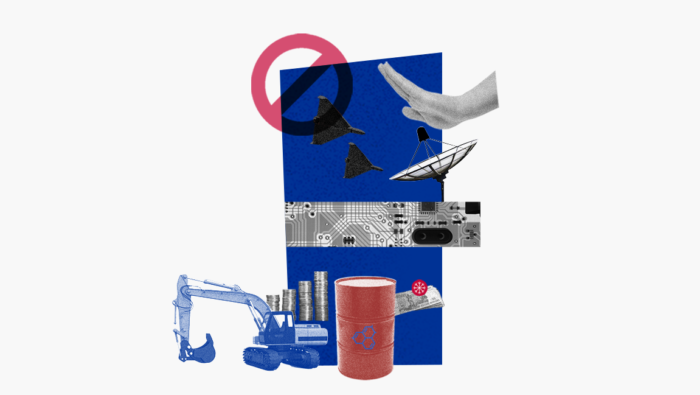The European Union continues to import Russian raw materials such as titanium and nickel despite the Russian all-out war against Ukraine and sanctions against Russia, according to Investigate Europe, an international team of reporters and editors.
Since February 2022, European companies have purchased "critical" raw materials worth 13.7 billion euros from companies linked to the Kremlin, Investigate Europe analysis found based on data from Eurostat and the European Commission's think tank, the Joint Research Center.
In eleven packages of sanctions against Russia, the EU has provided exemptions for over 30 types of "critical" raw materials that supplies from other sources cannot replace due to different factors, such as cost or global shortage of the said materials.
"Since Russia’s invasion of Ukraine in February 2022, the 27 EU countries have adopted 11 sanction packages, targeting raw materials including oil, coal, steel and timber. But minerals that the EU considers as "critical" raw materials – 34 in total – still flow freely from Russia to Europe in vast quantities, providing crucial funds to state enterprises and oligarch-owned businesses," according to Investigate Europe.
The raw materials that European companies continue to import from Russia are essential for the production of electronics, solar panels, and electric vehicles, as well as aerospace and defense industries.
From January to July 2023, the EU continued to import critical raw materials from Russia, with shipments amounting to more than 3.7 billion euros, according to Investigate Europe.
Related:
- Russian "shadow fleet" helps the Kremlin circumvent sanctions
- US cracks down on Chinese and Russian suppliers of drone components to Russia
- Bloomberg: EU likely to ban Russian diamonds in 12th Russia sanctions package
- NYT: Russia overcomes sanctions and produces even more missiles than before 2022





